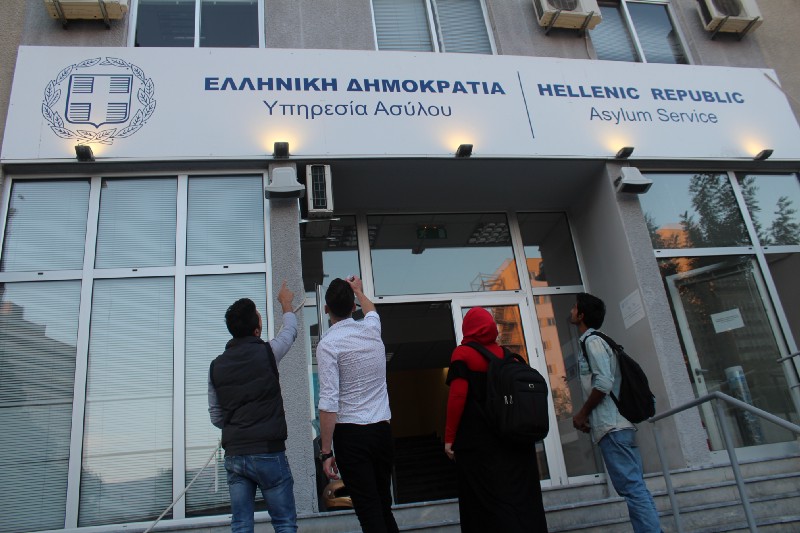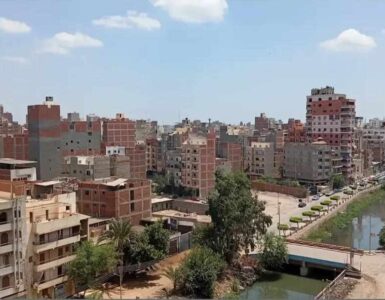For all those wishing to emigrate, Greece is the gateway to Europe.
A few days ago, our team went to the Asylum Service in Katehaki Avenue, where we interviewed Mrs Eleni Petraki, head of the PR and Communication Department.
After introducing ourselves and exchanging information about the service, we started asking our questions:
What rights will a refugee have once he or she has been legally accepted to live in Greece?
To begin with, all the information that an asylum seeker or someone with refugee status needs, can be found in the Asylum Service’s website www.asylo.gov.gr and on the mobile app Asylum Service Application (currently only for Android devices). The information provided by the app is available in seven languages and is free.
What criteria does one need to fulfill in order to be granted asylum?
The criteria are set out by the Geneva Convention, International and European Law and Greek legislation. A refugee is defined as someone who finds him/herself outside his/her country and has a well-founded fear of persecution due to his/her race, religion, nationality, membership of a particular social group or political opinion. He/she is unable to return to his/her country owing to this fear. Economic migrants are able to return to their country whenever they wish, whereas refugees can not return until the situation there changes and they are able to return safely. Only those who are not refugees are able to return to their country.
Are these criteria different in Greece from other European countries or are they the same everywhere?
Refugee law is the same everywhere and we are all obliged to implement it. All countries are required to abide by these laws.
Why are some claims for asylum denied?
They are denied because the people in question are not refugees. A claim is denied only after the correct procedure (which includes an interview) has been followed and the applicant is deemed not to have refugee status, i.e. that he/she does not fear persecution and is not afraid to return home. It’s a question of not being able to prove fear.
What happens if a refugee breaks the laws of their country of residence?
Anyone given refugee status by the Greek state has the same rights and obligation as a Greek citizen, with the exception of the right to vote or stand for elections. So, if I steal or break the law, and Fatima or Mohammed do the same, the law will treat us equally. The same is true if one of us is a victim of crime, injustice or violence. We have the same rights. The fact that I am a refugee in another country does not mean that I have fewer rights than that country’s citizens. We must assert our rights wherever we are.
What happens when someone makes repeated applications for asylum which are constantly denied?
If it has been proved that the applicant does not fullfill the relevant criteria for refugee status, the claim is denied and the person is considered to be living illegally in Greece. In this case, the process of repatriation to his/her own country begins.
If a refugee manages to get a passport issued, can he/she travel to any country and can they work anywhere?
If someone is officially recognised as a refugee and has an identity card from the Greek state, as well as his/her passport, then yes, he/she can travel as a tourist to other Schengen countries in Europe, just as Greek citizens do. However, he/she must return to Greece because this is where that person has been granted refugee status. According to the law today he/she can not settle or work in another country. The law is a European one, not a Greek one.

No one ever replies on skype. If someone has a serious problem, how do they get in touch with you? What if they have no internet?
From 1st August 2017, the Skype line is available 25 hours per week for applicants who are under the jurisdiction of the Regional Asylum Office of Attica and 23 hours per week for those in the rest of Greece. When there are too many calls and you keep trying but get no answer, it doesn’t mean that the Skype line is dead.
There is a rumour that those whose application has not been successful during the past year and a half will be expelled from Greece. Is this true?
No it isn’t! We don’t listen to rumours, we ask responsibly and we find out. In any case, we said that those who are not granted refugee status will be returned to their country.
What is the process by which unaccompanied minors apply for asylum?
According to a law governing the whole of Europe, a minor is anyone under the age of 18. In many European countries marriage under the age of 18 is forbidden for both boys and girls. I am telling you this by way of introducing the question of protection for unaccompanied minors in Greece. If we discover that a young person is under-age, a protection mechanism is immediately set in motion and the state is obliged to place unaccompanied minors in safe accommodation. The child is assigned a representative who will accompany him/her to the Asylum Service in order to submit an application for International Protection. If the applicant is under 15 years of age, we do not take his/her fingerprints, nor do we interview them. The Asylum Service has a separate place for unaccompanied minors to submit their applications, and this is on the first floor of the Old Garrison headquarters opposite the metro “Larissa Station”. The Asylum Service has a small team of staff there who register unaccompanied minors and vulnerable individuals. In the case of over-15s, the interviews are carried out at the Regional Asylum Office of Attica.
What percentage of asylum applications are granted?
In the first seven months of 2017, an average of 44% were successful. For Syrians this goes up to 99.5%, for Iraqis 72.8% and for Afghans 63.6%
Why does it take so long from the day I submit my application to the day I receive a reply, even though I have all the original correct documents?
The majority of people who come to the Asylum Service to request International Protection usually have no documents at all. No originals, no photocopies, nothing. Others may have had theirs stolen on their journey here, some may have thrown theirs into the sea, or they may simply not want to present them. There is therefore no official requirement for someone to present their documents at the time of registration. It is the interview that will reveal whether the applicant is telling the truth or not. There is usually a time-lag of a few months between the registration and the interview and then it normally takes about two to three months from the date of the interview for the decision to be announced. Sometimes the decision takes longer because it might be a particularly complicated case, or we have to wait for some health certificates, or the applicant has been a victim of torture etc.
How does Greece decide about refugees who want to go to Europe through the family reunification programme?
Greece follows the «Dublin III» regulation for family reunification. Unaccompanied minors can be reunited with their parents, siblings, uncles, aunts, grandparents, or spouses. In exceptional circumstances, such as a serious health issue, or if someone very elderly requires a relative to look after them, parents can be reunited with adult children.
The conclusion we drew was: never listen to rumours. If you have questions and doubts, ask the experts, just as we did!









Add comment